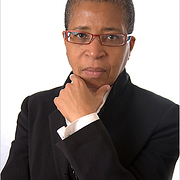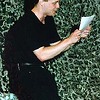Dionne Brand
Autor(a) de What We All Long For
About the Author
Dionne Brand was born in 1953 in Guayguayare, Trinidad and was educated at the University of Toronto and the Ontario Institute for Studies in Education. Brand was the founder and editor of Our Lives, Canada's first newspaper for black women. She has also worked on Fuse Magazine, The Harriet Tubman mostrar mais Review, Canadian Women Studies, and Research for Feminist Research. She also belongs to several community organizations including the Immigrant Women's Center and the Caribbean Peoples' Development Agency. Brand's involvement in politics is prevalent in her books, Chronicles of the Hostile Sun, Rivers Have Sources, Trees Have Roots: Speaking of Racism and Primitive Offensive, and Land to Light On, for which she received a Governor General's Award. Brand has also directed Sister's in Struggle, Long Time Comin' and Older, Stronger, Wiser for the National Film Board of Canada. (Bowker Author Biography) mostrar menos
Image credit: toronto.ca
Obras por Dionne Brand
No Burden to Carry: Narratives of Black Working Women in Ontario 1920's to 1950's (1991) 15 exemplares
L'amour, à peu près 1 exemplar
Associated Works
Daughters of Africa: An International Anthology of Words and Writings by Women of African Descent from the Ancient… (1992) — Contribuidor — 159 exemplares
Our Caribbean: A Gathering of Lesbian and Gay Writing from the Antilles (2008) — Contribuidor — 50 exemplares
Her True-True Name : an anthology of women's writing from the Caribbean (1989) — Contribuidor — 43 exemplares
The Oxford Book of Stories by Canadian Women in English (1999) — Autor, algumas edições — 30 exemplares
So Much Things to Say: 100 Poets from the First Ten Years of the Calabash International Literary Festival (2010) — Contribuidor — 24 exemplares
Another English: Anglophone Poems from Around the World (Poets in the World) (2014) — Contribuidor — 10 exemplares
Etiquetado
Conhecimento Comum
- Data de nascimento
- 1953-01-07
- Sexo
- female
- Nacionalidade
- Trinidad and Tobago (birth)
Canada - Local de nascimento
- Guayaguayare, Trinidad and Tobago
- Locais de residência
- Guayaguayare, Trinidad and Tobago
Toronto, Ontario, Canada - Educação
- University of Toronto (BA|English & Philosophy)
University of Toronto (MA|Philosophy of Education) - Ocupações
- instructor
poet
writer
director - Organizações
- University of Guelph
- Prémios e menções honrosas
- Fellow, Royal Society of Canada (2006)
Poet Laureate of Toronto (2009, 3-year term)
Membros
Críticas
Listas
Prémios
You May Also Like
Associated Authors
Estatísticas
- Obras
- 31
- Also by
- 18
- Membros
- 1,297
- Popularidade
- #19,797
- Avaliação
- 3.7
- Críticas
- 26
- ISBN
- 88
- Línguas
- 2
- Marcado como favorito
- 3



























